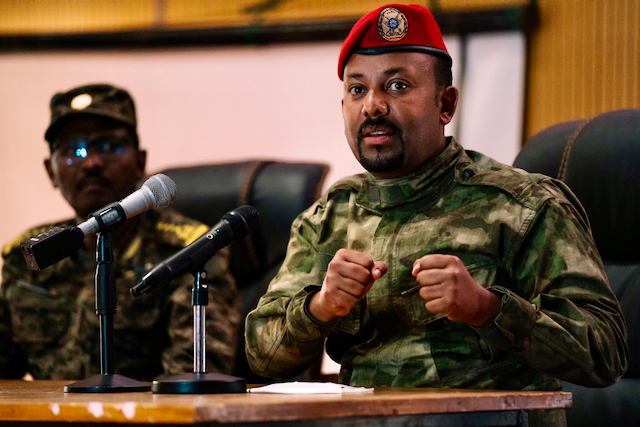
Ethiopia: A brief assessment of Prime Minister Abiy Ahmed as he starts his second term
Source: Martin Plaut
October 5, 2021
2018 – a bright new dawn
It seems an age ago, but it was just 2018 when Prime Minister Abiy took the helm in Addis.
At the time Ethiopia was among the fastest developing countries in Africa. The country had grown at over 10% a year for more than a decade.
At the same time it had many in jail and suppressed the media, but the outlook was optimistic.
Very soon Abiy Ahmed appeared to be a miracle worker.
In a few short months he:
- Reached out to his neighbouring states – resolving many long-standing issues
- Made peace with Eritrea
- Released journalists
- Unbanned political parties
- Was hailed as the first Oromo ever to lead the state.
The prospects were bright. So bright that he was awarded the Nobel Peace Prize – a huge honour!
2021 – how different
Today Ethiopia is trapped in a bitter civil war in Tigray and Oromia.
- The Ethiopian army – once among the finest in Africa – has been decimated
- Areas of the North and the West are occupied by Eritrea, apparently with PM Abiy’s consent
- Eritrean agents scour Addis Ababa and other towns for enemies and deport or attack anyone that stands in President Isaias’s way
- Tigrayans – although fighting back – are almost hermetically sealed from the outside world. Some 5.2 million people are facing starvation, yet UN convoys are not allowed to supply them
- The Oromo are deeply alienated
- Ethiopia’s relations with Sudan are terrible, with clashes along the border
- Ties with traditional allies in Europe and the United States have deteriorated to breaking point
- The economy is in tatters with growth falling and debts rising.
- Journalists have been arrested, freedoms are being curtailed.
This is the legacy Abiy Ahmed has made for himself. It is hardly a positive outlook at the start of the Prime Minister’s second term.
